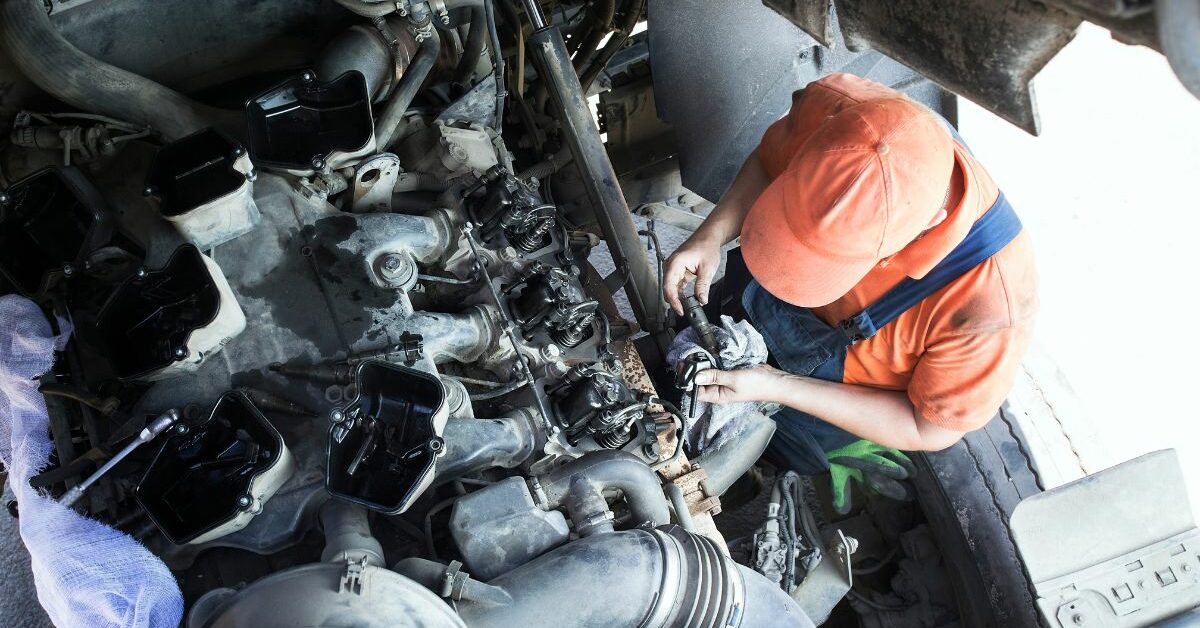How To Become A Diesel Mechanic?
Diesel mechanics are skilled professionals who specialize in the maintenance and repair of heavy-duty vehicles such as trucks, buses, and construction equipment. With the increasing demand for these vehicles, the need for diesel mechanics is also increasing. If you are interested in becoming a diesel mechanic, then this article will provide an in-depth guide on the steps you need to take.
Steps To Becoming A Diesel Mechanic
Are you interested in becoming a diesel mechanic? Do you want to work with heavy-duty vehicles and equipment? If so, then you’re in the right place. In this article, we’ll take a look at the steps you need to take to become a diesel mechanic.
- Get Formal Education and Training
If you want to become a diesel mechanic, the first step is to get formal education and training. While it’s possible to learn on the job, most employers prefer to hire candidates who have completed a diesel technology program. These programs are offered by vocational or technical schools and usually take 6 to 12 months to complete.
During your education and training, you’ll learn about diesel engines, hydraulics, and electrical systems. You’ll also gain hands-on experience through classroom instruction and practical exercises. By the time you complete your program, you’ll have the skills and knowledge required to work as a diesel mechanic. - Obtain Certification
Once you’ve completed your education and training, it’s time to obtain certification. Certification demonstrates to employers that you have the skills and knowledge required to work as a diesel mechanic. There are several organizations that offer certification, including the National Institute for Automotive Service Excellence (ASE).
To obtain certification, you’ll need to pass an exam that covers topics such as diesel engines, brakes, and suspension systems. You’ll also need to have a certain amount of work experience before you can take the exam. Once you’ve passed the exam, you’ll be recognized as a certified diesel mechanic. - Gain Work Experience
After obtaining certification, it’s time to gain work experience. You can start as an apprentice or a trainee in a diesel repair shop. This will give you hands-on experience and help you to develop your skills. You can also consider working as a mobile diesel mechanic to gain more experience.
During your work experience, you’ll encounter a wide range of vehicles and equipment. You’ll learn how to diagnose and repair common problems, as well as how to perform routine maintenance tasks. You’ll also learn how to work with customers and communicate effectively with them. - Keep Learning and Updating Skills
The world of diesel mechanics is constantly changing, and it’s essential to keep up with the latest trends and technologies. To stay up-to-date, you can attend training courses or seminars. These events will help you to update your skills and knowledge and learn about new technologies.
You can also read industry publications and attend trade shows to stay informed about the latest developments in the field. By staying up-to-date, you’ll be better equipped to provide high-quality service to your customers and advance your career as a diesel mechanic.
Skills Needed For Becoming A Diesel Mechanic
In addition to the above-mentioned skills, there are other skills that can make you a successful diesel mechanic. One of these is having good mechanical aptitude. This means that you have a natural ability to understand how things work and how to fix them. This skill can be developed through experience, training, and education.
Another important skill for a diesel mechanic is the ability to use diagnostic equipment. With the advancement of technology, modern vehicles are equipped with complex computer systems that require specialized tools and equipment to diagnose and repair. A diesel mechanic should be familiar with the latest diagnostic equipment and technology in order to stay up-to-date with the latest industry trends.
It’s also important for a diesel mechanic to have good customer service skills. This means that you should be able to communicate effectively with customers and explain technical problems in a way that is easy to understand. Good customer service skills can help you to build a loyal customer base and increase your chances of success in the industry.
Finally, physical strength and stamina are also important for a diesel mechanic. You will be required to lift heavy objects, work in tight spaces, and stand for long periods of time. Therefore, it’s important to maintain a good level of physical fitness and health to perform your job duties effectively.
Becoming a diesel mechanic requires a unique set of skills including problem-solving, attention to detail, critical thinking, ability to work under pressure, good communication skills, mechanical aptitude, ability to use diagnostic equipment, customer service skills, and physical strength and stamina. By possessing these skills and continuously developing them, you can become a successful diesel mechanic in the industry.
What Is A Diesel Mechanic?
Diesel mechanics play a crucial role in keeping our economy moving. Without their expertise, the transportation of goods and people would come to a standstill. These professionals work in a variety of settings, from large trucking companies to small independent repair shops.
One of the key skills required of a diesel mechanic is the ability to diagnose problems quickly and accurately. This requires a deep understanding of how diesel engines work, as well as the ability to interpret diagnostic codes and other technical information. Once the problem has been identified, the mechanic must then determine the best course of action to fix it.In addition to mechanical skills, diesel mechanics must also have strong problem-solving and communication skills. They often work with customers to explain the nature of the problem and the steps required to fix it. They may also need to work with other mechanics or technicians to share information and collaborate on complex repairs.
Despite the importance of their work, diesel mechanics often face challenging working conditions. They may need to work in cramped or dirty spaces, and may be exposed to hazardous materials such as oil and chemicals. They must also be able to work in all kinds of weather, as breakdowns can occur at any time.Despite these challenges, many diesel mechanics find their work to be rewarding and fulfilling. They take pride in knowing that they are helping to keep our economy moving, and in the satisfaction of solving complex problems and restoring vehicles to working order.
Diesel mechanics are skilled professionals who play a vital role in keeping our economy moving. They use their expertise to diagnose and repair complex issues in heavy-duty vehicles, and must be able to work in challenging conditions. Despite these challenges, many diesel mechanics find their work to be rewarding and fulfilling.
The Benefits of Working as A Diesel Mechanic
Working as a diesel mechanic is a rewarding career choice. Here are some of the benefits that come with being a diesel mechanic:
- High demand for diesel mechanics.
- Good job security.
- Excellent earning potential.
- Opportunities for career advancement.
- Flexible work schedules.
The demand for diesel mechanics is expected to increase in the coming years, making this a stable and secure career choice. Diesel mechanics are essential to keeping the economy moving, as they maintain and repair the diesel engines that power trucks, buses, and heavy equipment. As the population continues to grow, there will be an increased demand for goods and services, which means more diesel-powered vehicles will need to be serviced.
Moreover, diesel mechanics enjoy good job security. Because of the specialized skills required to work on diesel engines, there is a shortage of qualified mechanics. This means that diesel mechanics are always in demand, and they are less likely to be laid off than workers in other industries.
Another benefit of working as a diesel mechanic is the excellent earning potential. According to the Bureau of Labor Statistics, the median annual wage for diesel service technicians and mechanics was $48,500 as of May 2020. However, experienced diesel mechanics can earn significantly more, with some earning six-figure salaries.
In addition to good pay, diesel mechanics also have opportunities for career advancement. They can specialize in a particular area, such as engine rebuilding or electronic systems, or they can become supervisors or managers. Some diesel mechanics even start their own repair businesses.
Finally, diesel mechanics enjoy flexible work schedules. Many shops offer evening and weekend hours, which can be convenient for those who have family obligations or other commitments during the day. Some diesel mechanics also work on-call, which means they are available to respond to emergency repair requests at any time of the day or night.
Working as a diesel mechanic is a smart career choice for those who enjoy working with their hands, solving complex problems, and earning a good living. With high demand, good job security, excellent earning potential, opportunities for career advancement, and flexible work schedules, diesel mechanics have a lot to offer.
As the world becomes increasingly reliant on heavy-duty vehicles, the need for diesel mechanics will continue to grow. Becoming a diesel mechanic is a challenging and rewarding career choice, requiring specialized training, certification, and experience. By following the steps outlined in this article, you can prepare yourself for a successful career as a diesel mechanic.




